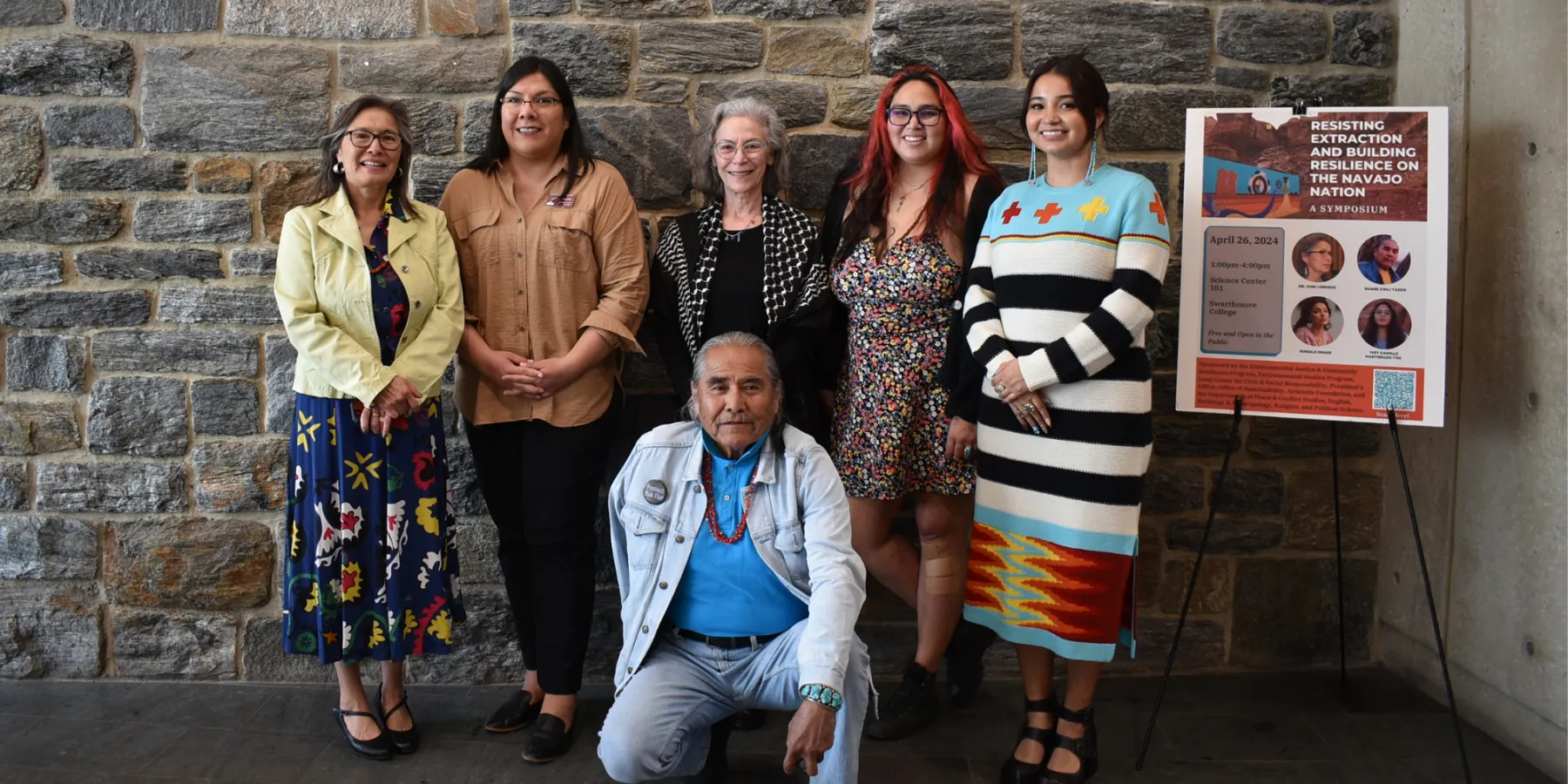A Symposium on Resisting Extraction and Building Resilience on the Navajo Nation
Stories from Diné Leaders, Artists, and Activists

April 25-26, 2024 | This two-day symposium convened a panel of Navajo (Diné) scholars, activists, and artists to discuss the colonial legacies of extractive industries on Navajo lands and the ongoing fight for environmental and social justice. Panelists offered cross-generational perspectives on the impacts of uranium and coal mining, the erosion of land and water rights, and the broader struggle for Indigenous sovereignty. They shared their efforts to resist these injustices through research, advocacy, artistic expression, and cultural revitalization, demonstrating how reclaiming traditional knowledge and practices is central to decolonial futures.
The event began with a screening of Powerlands, an award-winning documentary by Ivey Camille Manybeads Tso (Diné), which investigates the displacement of Indigenous people and environmental devastation caused by chemical companies on her ancestral land. The day also featured presentations, poetry readings, and a roundtable discussion with esteemed speakers:
- Dr. June Lorenzo (Laguna and Diné): An attorney and human rights advocate, Dr. Lorenzo has an extensive career practicing law and advocating for Indigenous peoples' rights. Swarthmore College
- Duane “Chili” Yazzie (Diné): A farmer, community organizer, and respected Navajo Nation leader, Yazzie has dedicated his life to activism on the Navajo Nation. Swarthmore College
- Kinsale Drake (Diné): A published poet, editor, and playwright, Drake's debut poetry collection, The Sky Was Once A Dark Blanket, has received numerous awards. Swarthmore College
- Ivey Camille Manybeads Tso (Diné): An award-winning documentary filmmaker, Tso's first feature film, Powerlands (2022), has garnered critical acclaim.
Swarthmore Environmental Studies Professor Dr. Adrienne Benally (Diné), whose work examines the politics of resource extraction on the Navajo Nation, joined the discussion, bringing academic insights to the lived realities shared by the panelists. The symposium aimed to raise awareness within the Swarthmore community about the ongoing colonial impacts of extractive industries on tribal lands and to amplify the advocacy efforts of Diné activists, focusing on intergenerational and creative resistance.
Co-organized by Professors Giovanna Di Chiro and Adrienne Benally, and sponsored by the Environmental Justice & Community Resilience Program (EJCR) at the Lang Center and the Environmental Studies Program, it also contributed to the growing interest at Swarthmore College in Native American and Indigenous programming that engages critical Indigenous issues and centers Indigenous voices and perspectives.



